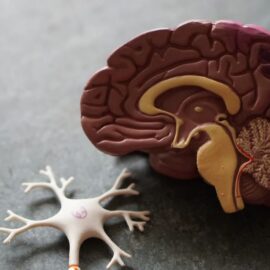

This article is an excerpt from the Shortform book guide to "Keep Sharp" by Sanjay Gupta. Shortform has the world's best summaries and analyses of books you should be reading.
Like this article? Sign up for a free trial here .
How does a lack of social connection affect your mental health? Why is it important to maintain social connections throughout life?
Psychological research increasingly shows that social connection is important for your psychological well-being. Strong social connections are a better predictor of long, happy lives than social class, intelligence, or genetics.
Keep reading to learn about the link between social interaction and mental health.
Social Connection
From an evolutionary perspective, the importance of social connection makes sense. Humans are a very social species. Throughout history, we’ve survived through communal living and reliance on others for food, water, shelter, and protection. In the modern world, as Gupta points out, social isolation is on the rise. Despite being connected to many people through digital media, many people lack real, close connections. If we wish to counteract this and preserve brain health, we must focus on building community with others and establishing meaningful relationships.
| Social Interaction and Mental Health In Lost Connections, Johann Hari argues that one of the leading causes of depression is a disconnection from meaningful relationships. Depression can be a vicious cycle: As you become socially isolated, you may become more depressed, which leads you to further isolate yourself. Like Gupta, Hari argues that online connections, while sometimes helpful, are not enough. Experts say this is because online relationships are more about communication than real connection. To get the most out of relationships, you need to feel you are truly connecting with others. Avoiding depression is important for your overall cognitive health because depression can cause or exacerbate many of the risk factors for dementia that Gupta presents, including insomnia, weight fluctuations, and constricted blood vessels. This can also be seen in the link between diabetes and depression. Those with clinical depression are 60% more likely to develop diabetes. Therefore, avoiding depression can help avoid many of the predictors of cognitive decline. |
Tips for Social Engagement
Gupta provides some ideas for building and maintaining social connections:
First, focus on things you enjoy: Try to spend time with people you enjoy being around and doing the activities you like the most.
(Shortform note: In The Happiness Project, Gretchen Rubin notes that many people participate in activities they believe they should enjoy instead of ones they actually enjoy. One way to avoid this is to ask yourself if you truly look forward to certain activities. If you don’t, you may just be trying to project a certain image of yourself rather than do something because you enjoy it.)
Second, volunteer: Giving back to the community can help you form and strengthen social connections. You can do this through a local school, community center, or charity.
(Shortform note: As pointed out in Lost Connections, group volunteering is often recommended to people struggling with depression. Volunteering not only provides a structured support system and social reconnection, but it can also give people a sense of purpose and increase their self-esteem.)
Third, build and maintain at least one strong relationship: Having one person in your life you can truly count on is extremely important. If possible, try to communicate with them routinely. Gupta recommends going on a walk with a close friend and talking about your anxieties.
(Shortform note: In just the past few decades, social connectedness has decreased at a steady rate in the United States. In 1985, the average person had three close confidantes. By 2004, that number had dropped to one, with a quarter of all Americans claiming that they didn’t have a single person they could confide in.)

———End of Preview———
Like what you just read? Read the rest of the world's best book summary and analysis of Sanjay Gupta's "Keep Sharp" at Shortform .
Here's what you'll find in our full Keep Sharp summary :
- The steps you can take to prevent cognitive decline such as Alzheimer’s
- How to keep your brain strong and resilient throughout your life
- Foods to eat and avoid to maintain brain health






